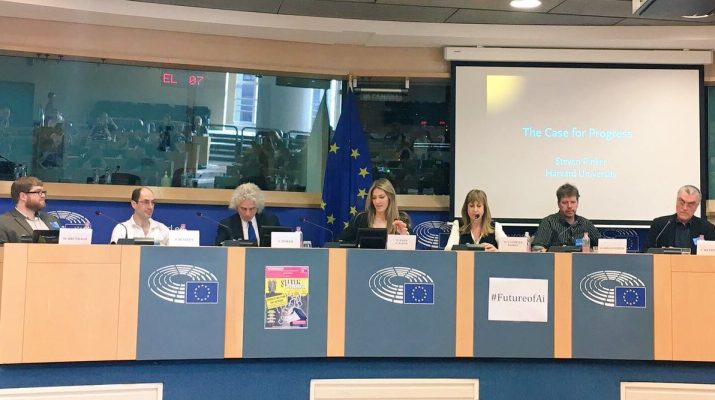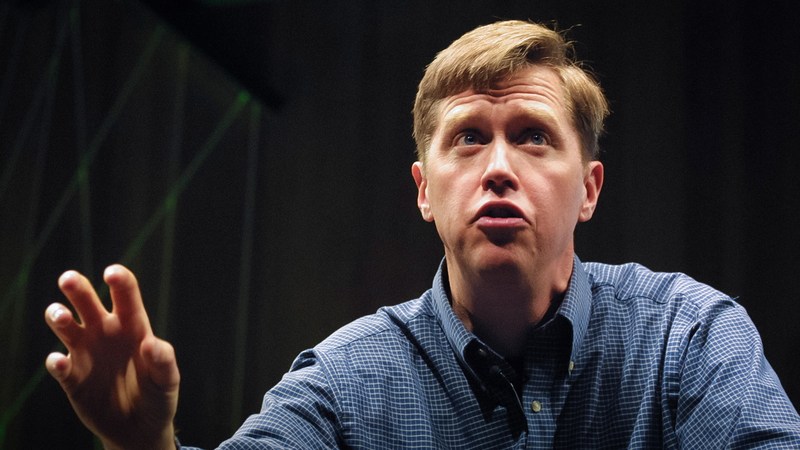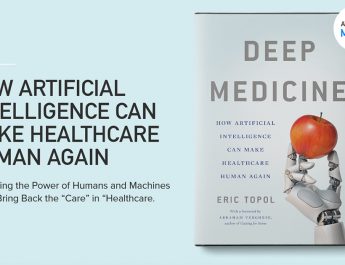The STOA workshop ‘Should we fear the future? Is it rational to be optimistic about artificial intelligence?’ gathered speakers from the fields of sociology, policy, computer science and philosophy to contribute their perspectives on the future of Artificial Intelligence (AI).
The Artificial Intelligence Channel
In her welcome address Eva Kaili (S&D, Greece), MEP and STOA Chair, emphasised that the EU should take a leading role in thinking about new technology and its positive and negative implications. Maria Teresa Gimenez Barbat (ALDE, Spain), MEP and chair of the event, used her introduction to stress the link between science, technology and social realities, and the importance of ensuring that politicians have scientific information available to them.
She then introduced Steven Pinker (Harvard University) for a keynote lecture in which the experimental psychologist claimed, via several longitudinal measurements of human wellbeing, that humanity is making progress and that we have every reason to be optimistic about the future in general. This provided the context for the subsequent panel debate in which the discussion revolved around AI and, more specifically, whether it was considered rational to be optimistic about the future impact of AI on our lives.
The panellists provided a wide range of views speaking from four different disciplinary backgrounds. Peter J. Bentley (University College London), a computer scientist, argued that AI is good at specific tasks, but does not, and will never, have the general intelligence required to pose significant threats to humanity. Miles Brundage (University of Oxford), a policy researcher, highlighted that AI could have significant and varied impacts on our lives, and argued that we should think carefully about how we can shape its development to maximise the benefits while limiting potential problems. Olle Häggström (Chalmers University), a statistician, argued that the chances of significant negative impacts may be small and little understood, but their gravity demands that we take them seriously, adding that, in venturing into unchartered territory, we may be making fundamental mistakes.
The fourth panellist, philosopher Thomas Metzinger (Johannes Gutenberg University of Mainz), reframed the debate from the dichotomy of pessimism versus optimism towards rational risk management. Presenting several options highlighted in a policy paper, he argued for international cooperation and a global code of ethics, so that AI development can be fostered in a responsible way and to ensure that controversial research such as on the development of artificial consciousness is not pushed out to countries with fewer ethical concerns.
While nobody can predict how AI will develop in the future, it seems that we will encounter many challenges and opportunities, some more serious than others. If there were a single rational position on the future of AI, it would certainly be more nuanced than unbridled optimism or crippling fear. Until we know more about the impacts of AI and the capabilities of humanity to respond to them, it will remain important to create spaces where we can observe, reflect and debate the issues and, where necessary, prepare appropriate responses.
Since AI is attracting increasing attention amongst MEPs and citizens alike, STOA is currently planning further initiatives on this fascinating subject, so watch this space! Until then, you can access the presentations and watch the webstream of last week’s workshop via the event page.
Source: https://epthinktank.eu/




